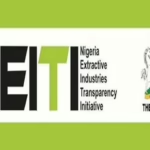The Manufacturers Association of Nigeria (MAN) has voiced serious concerns regarding the planned implementation of a Tax Stamp System on excisable products within the country.
According to MAN, this initiative is likely to result in substantial compliance expenses, operational delays, and only marginal increases in government revenue.
Segun Ajayi-Kadir, the director-general of MAN, acknowledged the Nigerian government’s efforts to modernize and unify tax administration through the Nigeria Tax Act 2025.
He noted that the act has been well-received by members of the association for its role in streamlining the tax process and providing significant relief, especially for small and medium-sized enterprises (SMEs).
Nonetheless, Ajayi-Kadir urged a prudent evaluation of the proposed Tax Stamp System, emphasizing, “Although the goal to curb smuggling, counterfeit goods, and improve transparency is admirable, it is essential to carefully assess the wider consequences of this proposal.”
He reminded stakeholders that the idea of tax stamps was initially introduced in 2018 but was ultimately set aside, expressing hope that the current proposal would not disrupt the advancements achieved through the new tax legislation.
Ajayi-Kadir highlighted that the recent tax reforms have already eased the tax burden and supported businesses, warning that introducing tax stamps might unintentionally increase financial pressures on industries and complicate regulatory compliance.
MAN cautioned that the added costs from tax stamps could inadvertently fuel illegal trade, as businesses might be discouraged from compliance, negatively impacting both government revenue and legitimate enterprises.
“Producers and importers may pass on these additional costs to consumers by raising prices, which could push buyers toward cheaper, illicit products,” Ajayi-Kadir explained.
The association also acknowledged the government’s deployment of advanced digital platforms, such as the B’Odogwu Automated Excise Register System (ERS) by the Nigeria Customs Service and the Federal Inland Revenue Service’s (FIRS) e-invoicing system, which already enhance transparency without imposing extra compliance burdens.
Ajayi-Kadir stressed that Nigerian manufacturers, competing against imported goods in regional markets, could see their competitiveness undermined by the extra expenses associated with tax stamps, particularly in a climate where inflation is already dampening consumer purchasing power.
This scenario risks shifting consumer preference toward more affordable imported products, creating further challenges for domestic manufacturers.
“Studies indicate that while tax stamp systems might appear to increase reported tax revenue, the associated compliance costs often surpass these gains. Historical evidence shows such systems can negatively affect the profitability and tax adherence of small businesses,” he added.
Drawing on experiences from countries like Kenya, Uganda, and Ghana, Ajayi-Kadir pointed out that tax stamp systems only succeed under stringent enforcement and strong governmental backing. In many developing economies, these systems tend to raise operational costs, shrink the formal market, and encourage illicit trade.
In conclusion, MAN’s director-general urged the government to reject the introduction of Tax Stamps and instead focus on enhancing existing digital tax tools and border security measures to ensure compliance without placing excessive burdens on the manufacturing sector.

















